Explore the best places
Results for castelo in Portugal
Castelo de Sines
- heritage
Largo Porta do Bocage
7520-152, Sines
A medieval castle that was restored several times along the years. Of the primitive castle still remain the walls with battlements and turrets, the donjon with windows and the palace of the military commander. In the armory one can view interesting armour paintings, war trophies and the royal shield of Dom João V. The walls still have architectural visigothic elements.
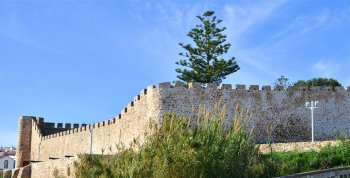
Castelo do Bom Jesus / Casa dos Castelos
- heritage
EN 103-3
4710-455, Bom Jesus
Former family property dated from the 19th century, who currently works as the House of turismo de habitação.
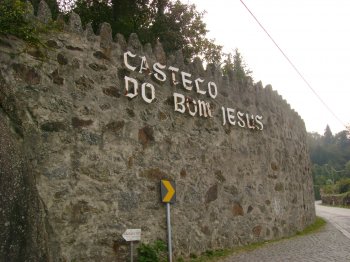
Castelo do Crato (vestígios) / Castelo da Azinheira
- heritage
Largo do Castelo, 1
7430-127, Crato
Four-pointed bastioned fortress with medieval-type walls and a redan. The ruins of the medieval fortification are visible in the central area, isolated walls or with structures attached to them for the construction of artillery platforms. As examples of ruins of modern fortification, there are four redan with a guardhouse and traces of chimneys and niches. The fort's door mantains the portcullises of the drawbridge, and there is a cistern right in the center of the fortification. Some sections of the wall and from the barbican are monumentally beautiful. The first fortress dates back to the reign of King Afonso Henriques, …
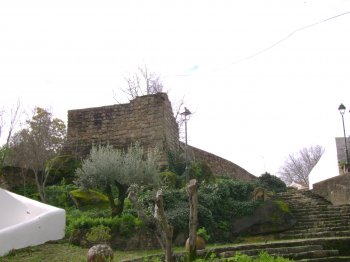
Castelo de Aljustrel e Igreja de Nossa Senhora do Castelo / Santuário de Nossa Senhora do Castelo
- heritage
Rua Nossa Senhora do Castelo
7600-076, Aljustrel
Is the most emblematic site in the village of Aljustrel. The Hermitage with grand staircase is used for pilgrimage. Features Baroque architecture and popular. The castle still exist some sections.
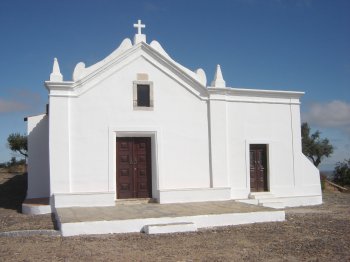
Cadeia Comarcã de Castelo de Vide / Núcleo Museológico de História e Arquitectura Militares
- heritage
Rua Direita
7320-151, Castelo de Vide
According to the Director-General of prison services, the municipality of Castelo de Vide received, in September 1933, subsidies for the construction of the civil jail.
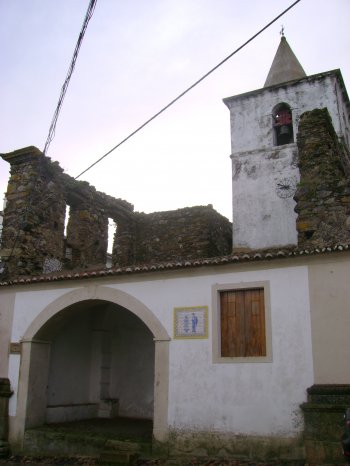
Forte Nossa Senhora das Neves / Castelo de Matosinhos
- heritage
Largo do Castelo
4450, Leça da Palmeira
This 17th century building is shaped like a four-pointed star, each protected by guardhouses. The vestiges of this defensive fort can be seen on Avenida Doutor Antunes Guimarães, Rampa do Castelo and Rua de Santa Catarina. It began to be built in 1638, but in 1655 it was still not completed. In 1832, during the civil war, it underwent some modifications and, in the 20th century, it was handed over to the Captaincy of the Port of Leixões, which carried out works to house its staff there.
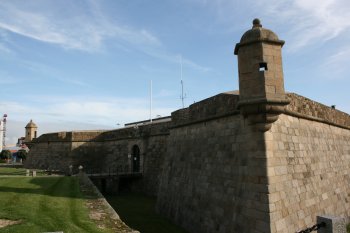
Palácio da Vedoria / Edifício do Arquivo Distrital de Viana do Castelo
- heritage
Rua Manuel Espregueira, 140
4900-318, Viana do Castelo
Noble House of Mannerist rectangular plant consisting of two bodies and roofs of four waters. Inside, the Foyer decentered with access ladder to the piano nobile. Originally, functioned as Vedoria and respective barracks, being currently here installed the District of Viana do Castelo File.
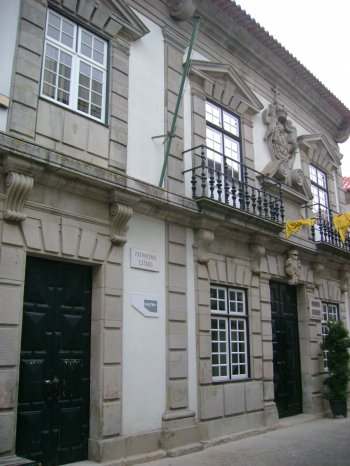
Capela de Nossa Senhora do Castelo
- heritage
Vila Velha de Ródão
6030-164, Vila Velha de Ródão
Hermitage consists of a T-shaped plan, due to the construction of two sacristies, keeping within a tiled front Mudejar.
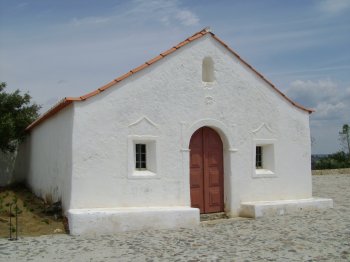
Alcáçova do Castelo de Mértola
- heritage
Mértola
7750, Mértola
In the northern slope of the Castle, the possible forum of the Roman city creates an artificial platform, support the imposing monumental Myrtilis City set. All this platform, flush with the wall, relied on a solid underground Gallery with about 30 feet long and 6 feet tall. In late Antiquity, 5th and 6th centuries, religious buildings were erected luxury here; among them, a possible Episcopal Palace and a baptistery, of which there are significant fragments of a beautiful set of multi-colored mosaics. In the Islamic era, during the 12th and 13th centuries, this whole area is occupied by a residential …
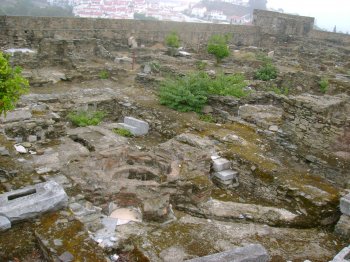
Antigo Castelo de Colares
- heritage
Colares
2705, Colares
Today only traces in ruins, which are not easily detetáveis, given its integration into the urban fabric of the town. In the 16th century was built here the Chiesa Madre (mother church), with five buttresses; has Watch Tower dating back to 1798.